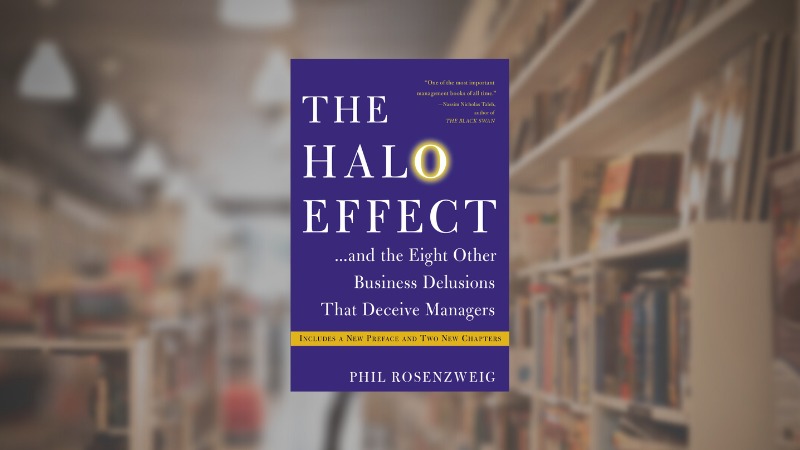
Book Note #3
Equity Intelligence 20th October 2023
This is one book we recommend all investors to not only read but re-read till they internalize the essence of the message…
In "The Halo Effect", Phil Rosenzweig encourages a more critical examination of widely accepted beliefs in business and management. He meticulously analyzes celebrated company case studies and management literature, identifying prevalent misconceptions that misguide interpretations of events. While we innately seek clarity by weaving simplistic narratives to explain past events, the true nature of business is intricate. Consequently, we're often misled by 'halos' — judgments deeply influenced by perceived outcomes. While recognizing the significance of strategy, Rosenzweig stresses the vital role of effective execution. He encourages a critical examination of popular business theories, advocating for tailored solutions rather than generic blueprints.
Here are the nine delusions that affect the managers’ judgment according to the book:
Delusion One: The Halo Effect
The tendency to look at a company’s overall performance and make attributions about the culture, leadership, values and more. In fact, many things we commonly claim that drive company performance are simply attributions based on prior performance.
Delusion Two: The Delusion of Correlation and Causality
Two things may be correlated, but we may not know which one causes which. Does employee satisfaction lead to high performance? The evidence suggests it's mainly the other way around - company success has a stronger impact on employee satisfaction.
Delusion Three: The Delusion of Single Explanations
Many studies show that a particular factor - strong company culture or customer focus or great leadership - leads to improved performance. But since many of these factors are highly correlated, the effect of each one is usually less than suggested.
Delusion Four: The Delusion of Connecting Winning Dots
If we pick a number of successful companies and search for what they have in common, we’ll never isolate the reasons for their success, because we have no way of comparing them with less successful companies.
Delusion Five: The Delusion of Rigorous Research
If the data aren’t of good quality, it doesn’t matter how much we have gathered or how sophisticated our research methods appear to be.
Delusion Six: The Delusion of Lasting Success
Almost all high-performing companies regress over time. The promise of a blueprint for lasting success is attractive but not realistic.
Delusion Seven: The Delusion of Absolute Performance
Company performance is relative, not absolute. A company can improve and fall further behind its rivals at the same time.
Delusion Eight: The Delusion of the Wrong End of the Stick
It may be true that successful companies often pursue highly focused strategies, but that doesn’t mean highly focused strategies often lead to success.
Delusion Nine: The Delusion of Organizational Physics
Company performance doesn’t obey immutable laws of nature and can’t be predicted with the accuracy of science - despite our desire for certainty and order.
Wise managers know that business is about finding ways to improve the odds of success - but never imagine success is certain. If a company makes strategic choices that are shrewd, works hard to operate effectively, and is favored by Lady Luck, it may put some distance between itself and its rivals, at least for a time. But even those profits will tend to erode over time. Success at one moment doesn’t ensure success in the next moment, because success invites new challengers, some of them willing to take greater risks than the incumbents. All of which helps explain why, seductive notwithstanding, there’s simply no formula that can guarantee success. As Tom Peters observed: “To be excellent you have to be consistent. When you’re consistent, you’re vulnerable to attack. Yes, it's a paradox. Now deal with It.”
We highly recommend the book…
“Once you’ve internalized the concept that you can’t prove anything in absolute terms, life becomes all the more about odds, chances, and trade-offs. In a world without provable truths, the only way to refine the probabilities that remain is through greater knowledge and understanding” - Robert Rubin, In an Uncertain World: Tough Choices from Wall Street to Washington


